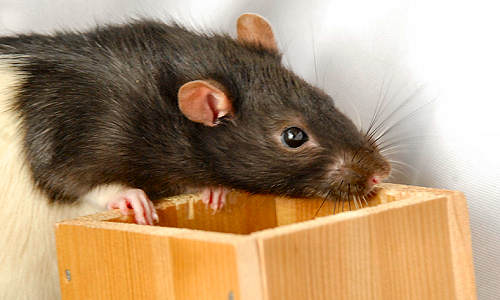Johns Hopkins researchers say they have confirmed suspicions that DNA modifications found in the blood of mice exposed to high levels of stress hormone—and showing signs of anxiety—are directly related to changes found in their brain tissues.
The proof-of-concept study, reported online ahead of print in the June issue of Psychoneuroendocrinology, offers what the research team calls the first evidence that epigenetic changes that alter the way genes function without changing their underlying DNA sequence—and are detectable in blood—mirror alterations in brain tissue linked to underlying psychiatric diseases.
The new study reports only on so-called epigenetic changes to a single stress response gene called FKBP5, which has been implicated in depression, bipolar disorder and post-traumatic stress disorder. But the researchers say they have discovered the same blood and brain matches in dozens more genes, which regulate many important processes in the brain.
“Many human studies rely on the assumption that disease-relevant epigenetic changes that occur in the brain—which is largely inaccessible and difficult to test—also occur in the blood, which is easily accessible,” says study leader Richard S. Lee, Ph.D., an instructor in the Department of Psychiatry and Behavioral Sciences at the Johns Hopkins University School of Medicine. “This research on mice suggests that the blood can legitimately tell us what is going on in the brain, which is something we were just assuming before, and could lead us to better detection and treatment of mental disorders and for a more empirical way to test whether medications are working.”
For the study, the Johns Hopkins team worked with mice with a rodent version of Cushing’s disease, which is marked by the overproduction and release of cortisol, the primary stress hormone also called glucocorticoid. For four weeks, the mice were given different doses of stress hormones in their drinking water to assess epigenetic changes to FKBP5. The researchers took blood samples weekly to measure the changes and then dissected the brains at the end of the month to study what changes were occurring in the hippocampus as a result of glucocorticoid exposure. The hippocampus, in both mice and humans, is vital to memory formation, information storage and organizational abilities.
The measurements showed that the more stress hormones the mice got, the greater the epigenetic changes in the blood and brain tissue, although the scientists say the brain changes occurred in a different part of the gene than expected. This was what made finding the blood-brain connection very challenging, Lee says.
Also, the more stress hormone, the more RNA from the FKBP5 gene was expressed in the blood and brain, and the greater the association with depression. However, it was the underlying epigenetic changes that proved to be more robust. This is important, because while RNA levels may return to normal after stress hormone levels decrease or change due to small fluctuations in hormone levels, epigenetic changes persist, reflect overall stress hormone exposure and predict how much RNA will be made when stress hormone levels increase.
The team of researchers used an epigenetic assay previously developed in their laboratory that requires just one drop of blood to accurately assess overall exposure to stress hormone over 30 days. Elevated levels of stress hormone exposure are considered a risk factor for mental illness in humans and other mammals.
Story Source:
The above story is based on materials provided by The Johns Hopkins University.





